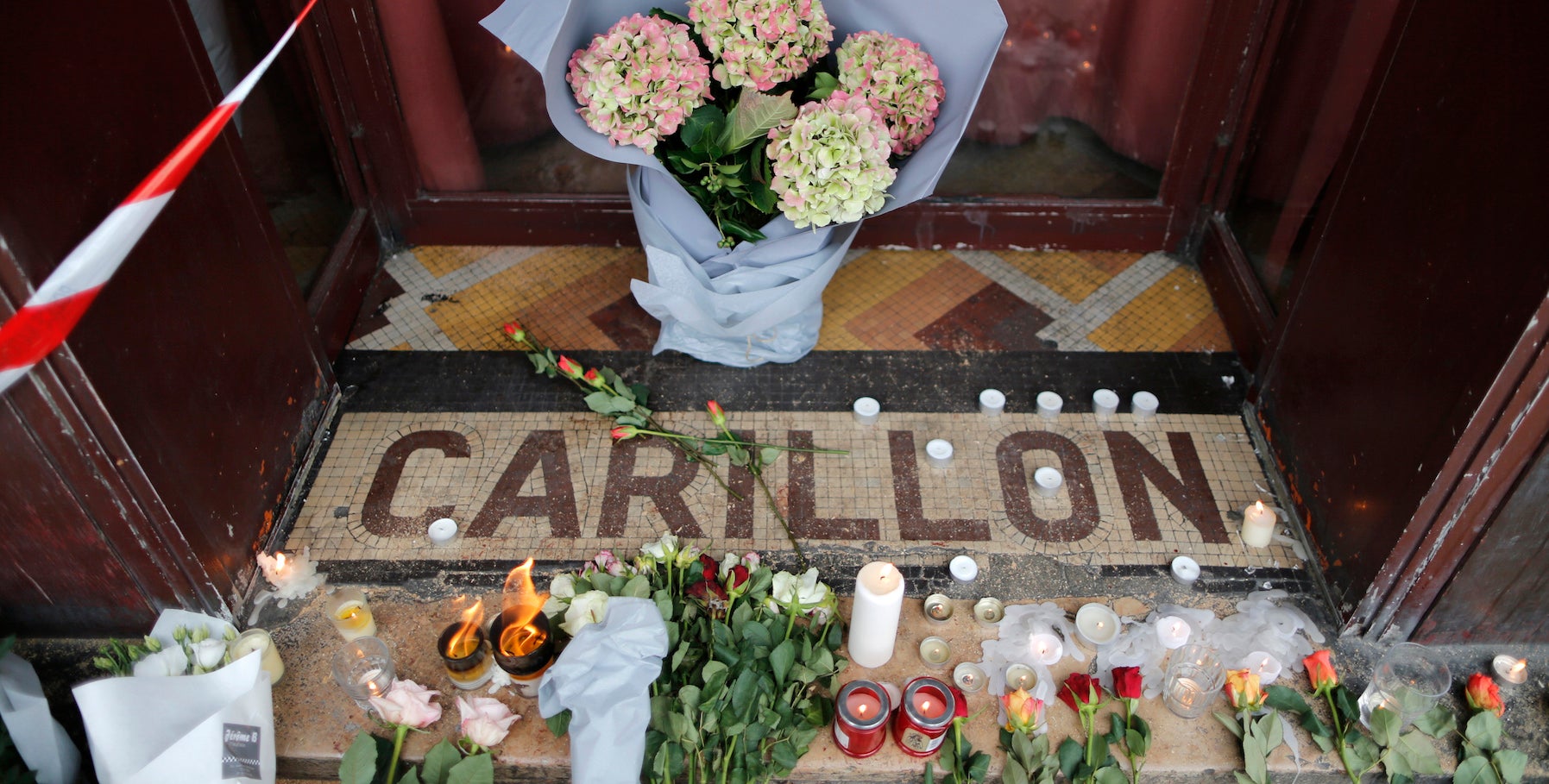Not another Charlie Hebdo: This time, Parisians feel “everyone is under attack”
Paris


Paris
Monday morning in the Canal Saint-Martin neighborhood of Paris. The first workday after a terrorist attack that shook the area, leaving 129 people dead and about 300 injured. The streets are quieter than usual and many tables at outdoor cafés remain empty. There is a quiet tension in the air, replacing the usual dynamism, noise, and laughter. Even fewer cars and bikes pass up and down the banks of the canal.
And occasionally piercing this near silence are the sounds of police and firetruck sirens, which seem more frequent than on a typical day.
Still, businesses are open as usual. From the trendy coffee shop Ten Belles, to much-loved neighborhood café Chez Prune, to grocery stores and bakeries only steps from one of the attacks, most businesses said sales haven’t been hurt as the regulars continue to go about their daily routines.
“We saw all of our regular customers yesterday and even broke our record,” said Mihaela Iordache, the manager at Ten Belles. The coffee shop closed Saturday (Nov. 14)—the day after the terror attack—but opened on Sunday. The cashier at a local bakery and the manager of Prune also said they hadn’t seen a decline in customers.
As locals continue to buy bread, have a coffee, and stroll around their neighborhood, they face the aftermath of the second terrorist attack in Paris since the start of the year. On Jan. 7, the Kouachi brothers shot dead cartoonists for the satirical newspaper Charlie Hebdo. The feeling is different after this most recent attack when compared with the Charlie Hebdo tragedy.
“After Charlie Hebdo, people could reunite publicly right away,” said Suvi Bonnet, who moved to the neighborhood from Finland about a decade ago. She was having her morning coffee as usual at Prune. “Today, we’re encouraged to stay home. There’s more uncertainty, more caution, more questions this time.”
The feeling of fear also is more pronounced this time around. Iordache said, just as she was about to close the coffee shop on Sunday night, a surge of people ran down the street and into any open door. What caused the panic was not determined.
Carmen Ragosta, a designer, runs her clothing shop and vegetarian café right next door. She said the random nature of the latest attack has made the post-attack feeling different from the one felt after Charlie Hebdo. “It’s the negative part of human nature, people thinking of themselves,” she said. “We think ‘That could have happened to me’. With Charlie Hebdo, there were targets. Now, everyone is under attack.”
Around the corner, the local Franprix grocery store was exceptionally quiet as the lunch hour approached. At least one customer died in the attack, said Louise, the store manager. She declined to provide her last name. Louise said that although business was steady over the weekend, Monday morning had been exceptionally slow.
Sihem, a 16-year-old, sat eating her lunch in the small café area near the front of the store. She lives not far from the Bataclan concert hall, one of the sites of the attacks, and said her parents are even more concerned for her safety than they were after the Charlie Hebdo attack.
“In the Charlie Hebdo attack, there was a ‘reason’,” she said. “Today, it’s touching everyone. My parents don’t want me hanging out at night, and even if they didn’t feel that way, I wouldn’t go out. I’m pretty sure that attacks could happen again.”